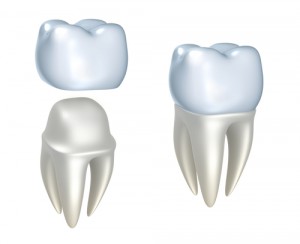 Did you know that recent research is connecting your oral health with your heart health? February is National Heart Month, so we’re highlighting this connection between the heart and the mouth. If you want to improve your heart health or if you want to ward off heart disease, keeping your teeth and gums healthy could be beneficial. Your Ankeny dentist, Dr. Erika Peddicord, explores the connection between heart disease and gum disease. (more…)
Did you know that recent research is connecting your oral health with your heart health? February is National Heart Month, so we’re highlighting this connection between the heart and the mouth. If you want to improve your heart health or if you want to ward off heart disease, keeping your teeth and gums healthy could be beneficial. Your Ankeny dentist, Dr. Erika Peddicord, explores the connection between heart disease and gum disease. (more…)
Ankeny Dentist: Love Your Baby’s Smile
 If you are a mother, think about the way you feel when you baby smiles at you. If you are an expecting mother, imagine that blissful feeling. Nothing warms a mother’s heart like her baby’s smile, and science is there to prove it. Recent research shows that mothers who simply look at their babies’ smiles activate a region of the brain associated with feelings of euphoria. Talk about a powerful smile! So if you’re a new mother or an expecting mother, you’ll want to do everything in your power to protect those teeth. Your Ankeny children’s dentist, Dr. Erika Peddicord, discusses what you can do to help your baby’s smile be as radiant as possible. (more…)
If you are a mother, think about the way you feel when you baby smiles at you. If you are an expecting mother, imagine that blissful feeling. Nothing warms a mother’s heart like her baby’s smile, and science is there to prove it. Recent research shows that mothers who simply look at their babies’ smiles activate a region of the brain associated with feelings of euphoria. Talk about a powerful smile! So if you’re a new mother or an expecting mother, you’ll want to do everything in your power to protect those teeth. Your Ankeny children’s dentist, Dr. Erika Peddicord, discusses what you can do to help your baby’s smile be as radiant as possible. (more…)
Ankeny Dentist Warns: Beware These Destructive Habits
 For the most part, good dental health is simple. Hopefully you should know to brush and floss your teeth at least twice a day, refrain from eating too much sugar, and visit your dentist at least once every six months for a comprehensive dental checkup and cleaning. However, certain habits and choices can undo the work of your diligent dental hygiene routine if you’re not careful. To help you protect your smile, Ankeny family dentist Dr. Erika Peddicord discusses some of these habits and the damage they can cause.
For the most part, good dental health is simple. Hopefully you should know to brush and floss your teeth at least twice a day, refrain from eating too much sugar, and visit your dentist at least once every six months for a comprehensive dental checkup and cleaning. However, certain habits and choices can undo the work of your diligent dental hygiene routine if you’re not careful. To help you protect your smile, Ankeny family dentist Dr. Erika Peddicord discusses some of these habits and the damage they can cause.
Dental Don’ts
Don’t Crunch
Ice is made of water, and therefore shouldn’t be harmful to your teeth. When frozen, however, the extreme cold temperature and brittle texture of ice cubes can be hazardous to your teeth’s structure. Nevertheless, crunching on ice is a common habit and can sometimes seem natural after polishing off a cold drink. Refrain from crunching on cubes to avoid cracking or fracturing your teeth. (more…)
Stop Bleeding Gums with Your Ankeny Dentist
 For most people, maintaining good oral health means taking care of teeth. Servicing your gums is just as important as keeping your teeth clean. When your gums bleed, it could be a sign of gum disease, though bleeding gums may not always signal unhealthy oral habits. Pregnant women may experience swollen, bleeding gums, as can chemotherapy patients. If your gums bleed during brushing and flossing, treating them immediately can keep you from dealing with additional swelling and pain. In this article, Ankeny family dentist Dr. Erika Peddicord explains how to treat gum disease that causes bleeding gums.
For most people, maintaining good oral health means taking care of teeth. Servicing your gums is just as important as keeping your teeth clean. When your gums bleed, it could be a sign of gum disease, though bleeding gums may not always signal unhealthy oral habits. Pregnant women may experience swollen, bleeding gums, as can chemotherapy patients. If your gums bleed during brushing and flossing, treating them immediately can keep you from dealing with additional swelling and pain. In this article, Ankeny family dentist Dr. Erika Peddicord explains how to treat gum disease that causes bleeding gums.
Gum Disease
More than 70% of Americans over 35 have some form of gum disease. Most suffer from gingivitis, the earliest stage of gum disease. As many as 15% of U.S. adults have periodontitis, the most advanced form of gum disease. Poor dental hygiene allows plaque to build on teeth and breed bacteria. These bacteria settle between teeth and penetrate the gum line, irritating and infecting gums. You can treat and reverse gingivitis on your own with a more disciplined oral care routine. If you ignore symptoms of gingivitis, like sore, bleeding gums, periodontitis will develop, which only a dental hygienist or dentist can treat with a deep cleaning. Advanced periodontitis leads to tooth loss, as bacteria can destroy not only the connective tissue between gums and teeth, but also jawbone tissue. Gum disease is the leading cause of tooth loss in the U.S. (more…)
Good and Bad News for Coffee Drinkers from Ankeny Dentist
 Some people treat coffee drinking almost as if it were a sport. In the office or at home, cups upon cups of coffee douse your teeth in darkness, risking tooth stains. But recent studies suggest drinking up for oral health. Research suggests that Americans who consume more than four cups of regular coffee every day cut their risk of mouth and throat cancer in half. Don’t start chugging fresh pots of joe just yet. The doctors behind the study claim more research will confirm their results. If this news is true, should you risk losing your white teeth for the benefits of four cups of coffee a day? In this article, Ankeny family dentist, Dr. Erika Peddicord, explores the latest news on coffee, and what it could mean for your teeth.
Some people treat coffee drinking almost as if it were a sport. In the office or at home, cups upon cups of coffee douse your teeth in darkness, risking tooth stains. But recent studies suggest drinking up for oral health. Research suggests that Americans who consume more than four cups of regular coffee every day cut their risk of mouth and throat cancer in half. Don’t start chugging fresh pots of joe just yet. The doctors behind the study claim more research will confirm their results. If this news is true, should you risk losing your white teeth for the benefits of four cups of coffee a day? In this article, Ankeny family dentist, Dr. Erika Peddicord, explores the latest news on coffee, and what it could mean for your teeth.
The Good News
Coffee’s high antioxidant and polyphenol content help slow or prevent cancer development. Researchers determined this after observing nearly one million men and women who drank coffee and tea since 1982. Participants who drank more than four cups of coffee a day showed a 49% less risk of developing throat and mouth cancer. Drinking de-caffeinated coffee or tea did not show similar results. Drinking so much coffee may not be the best idea for the well-being of your teeth, however. (more…)
Ankeny Dentist Answers: Do you need a crown or a filling?
 When faced with dental treatment, options may be confusing. A common misunderstanding is whether you need a crown or a filling. Don’t they both just restore a tooth to its original shape? Is one really better than the other? To help you understand the difference, your Ankeny family dentist, Dr. Erika Peddicord, teaches you the basics in today’s blog post.
When faced with dental treatment, options may be confusing. A common misunderstanding is whether you need a crown or a filling. Don’t they both just restore a tooth to its original shape? Is one really better than the other? To help you understand the difference, your Ankeny family dentist, Dr. Erika Peddicord, teaches you the basics in today’s blog post.
Definitions
Fillings and crowns both restore the structural integrity and shape of a chipped or fractured tooth. A filling is material placed within the walls of the tooth. A crown is a cap that is goes completely over a tooth. While fillings simply restore a tooth’s shape, a crown can also reshape a tooth, since it fully encases all the tooth’s visible portions. (more…)
Moms Influence Their Teens’ Oral Health in Ankeny
 One way to gauge the condition of a teenager’s oral health is to look at the education and emotional health of the mother, according to a Case Western Reserve University study. If the mom knows and cares little about oral health, she may negatively influence her children’s oral health. In this blog, your Ankeny family and children’s dentist, Dr. Erika Peddicord, discusses why mothers need to be educated and stay healthy, for the health of themselves and their children.
One way to gauge the condition of a teenager’s oral health is to look at the education and emotional health of the mother, according to a Case Western Reserve University study. If the mom knows and cares little about oral health, she may negatively influence her children’s oral health. In this blog, your Ankeny family and children’s dentist, Dr. Erika Peddicord, discusses why mothers need to be educated and stay healthy, for the health of themselves and their children.
Childhood Oral Problems
Dental caries, the disease that causes cavities, is the singlemost common—and preventable—childhood disease, next to the flu. Cavities occur when sugar and starches ferment, which means bacteria consume them and secret enamel-destroying acids. Proper brushing twice a day, and flossing once a day, will remove sugars, starches, food particles, plaque, and some bacteria from the teeth, which helps deter tooth decay. However, many children do not brush and floss regularly or properly, and also eat a diet high in sugars. This is a dangerous combination.
One of the many jobs of parents is to ensure that their children have good health, and oral health is no exception. Some parents are unaware of the effect that poor daily dental habits can have on kids. Children as old as six may require a parent to perform daily brushing and flossing. Even after the child can manage brushing and flossing independently, he should be monitored to ensure that a thorough job is done. Parents also need to limit the amount of sugars their children take in, for the sake of good oral health and to prevent childhood obesity (a widespread problem in the USA). If parents are not vigilant about their children’s oral health, kids could face a lifetime of oral, and related overall, health concerns.
(more…)
It’s Officially Flu Season: Are You Prepared?
 This year, the Centers for Disease Control (CDC) and Prevention have declared an early start to the flu season, and warn that it may affect more people than in previous years. Medications can help ease influenza-like symptoms, but protecting yourself from the flu is the only way to spare you and those around you from its agony. As part of her dedication to the oral and overall health of all of our patients, Ankeny family dentist Dr. Erika Peddicord offers advice for lessening the flu’s impact this season.
This year, the Centers for Disease Control (CDC) and Prevention have declared an early start to the flu season, and warn that it may affect more people than in previous years. Medications can help ease influenza-like symptoms, but protecting yourself from the flu is the only way to spare you and those around you from its agony. As part of her dedication to the oral and overall health of all of our patients, Ankeny family dentist Dr. Erika Peddicord offers advice for lessening the flu’s impact this season.
What You Should Know
One of the main challenges of flu control is that the virus is highly contagious. It is also a serious illness that can lead to hospitalization, and the virus can evolve, making preventive efforts difficult. To help prevent contracting the virus, be sure to wash your hands often. Refrain from touching your eyes, nose, and mouth; these are easy pathways for microbes to enter your body. The CDC also recommends that you receive a vaccine every year, and avoid close contact with people who are ill. If you begin to feel ill or exhibit flu symptoms, such as fever, coughing, vomiting, or other cold-like symptoms that seem to grow worse, see your physician immediately. (more…)
Ankeny Dentist Observes National Handwashing Awareness Week
 National Handwashing Awareness Week takes place from December 2-8, reminding us to keep our hands clean. Since we use our hands for so much each day, it’s difficult to have germ-free fingers and palms. But, aside from washing them, there are other ways to avoid the germs that build on our hands. Dr. Erika Peddicord, your Ankeny family dentist, explores the link between handwashing and oral health.
National Handwashing Awareness Week takes place from December 2-8, reminding us to keep our hands clean. Since we use our hands for so much each day, it’s difficult to have germ-free fingers and palms. But, aside from washing them, there are other ways to avoid the germs that build on our hands. Dr. Erika Peddicord, your Ankeny family dentist, explores the link between handwashing and oral health.
The T Zone
Did you know that the eyes, nose, and mouth are the only entryways that allow for respiratory infections? This area is called the T Zone. The mucous membranes in this area are susceptible to germs hands pick up. Doctors suggest washing hands before eating and whenever they are dirty to avoid a large number of germs on the hands. While it may be difficult to not touch the T Zone, people should take extra care to not reach into their mouths. Save removing food stuck between teeth for later brushing or flossing. Before flossing, wash your hands to deter sickness. Germs from your own T Zone could get someone else sick too. Avoid spreading germs by coughing or sneezing into your elbow instead of your hands. (more…)
Ankeny Dentist: Cleaning Power of Baking Soda
 During the holiday season, many people long to clean and brighten their teeth efficiently. With the help of sodium bicarbonate (baking soda), you could achieve a brighter, cleaner smile for the holidays. For years, people realized the cleaning power of baking soda. Your Ankeny dentist, Dr. Erika Peddicord, discusses the amazing power of baking soda.
During the holiday season, many people long to clean and brighten their teeth efficiently. With the help of sodium bicarbonate (baking soda), you could achieve a brighter, cleaner smile for the holidays. For years, people realized the cleaning power of baking soda. Your Ankeny dentist, Dr. Erika Peddicord, discusses the amazing power of baking soda.
Sodium Bicarbonate
Cleaning your teeth with baking soda can effectively brighten your smile. The process for cleaning teeth with baking soda involves dampening your toothbrush and covering the bristles with baking soda. Simply brush teeth normally according to the American Dental Association’s guidelines. Brush for two minutes per session and make sure to scrub each tooth. Following your brushing, remove excess baking soda like you would normally spit out excess toothpaste.



